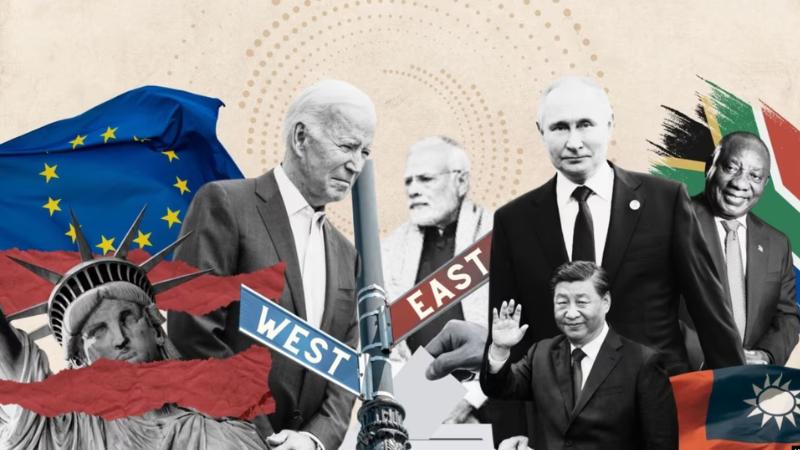
- greensea
- 06 Jan 2025 07:20 AM
- Global News
LONDON — In this historic election year, global governments faced a significant setback.
The most notable defeat for Americans was Vice President Kamala Harris losing to President-elect Donald Trump. However, this is just one example of a broader trend seen across the globe, from India to Austria, Botswana to South Korea, and Britain to Uruguay.
At the start of 2024, a media reported that the year would witness more elections than any other, with over 70 countries and 4 billion people heading to the polls. Now, with all the votes counted, one clear trend has emerged: In nearly every industrialized nation — and many developing countries as well — incumbents saw a decline in vote share.
“It’s been an incredibly tough year for incumbents,” said Rachel Kleinfeld, a senior fellow at the Carnegie Endowment for International Peace in Washington, D.C.
According to data from ParlGov, an independent database run by the University of Bremen in Germany, this was the first year since records began in 1905 that every incumbent party in developed countries lost vote share. The Financial Times first analyzed the data.
The exceptions were limited: Mexico’s ruling party won in June, but this followed a series of incumbent defeats across Latin America, and Ireland’s government was re-elected in November, despite a slight dip in support.
The reasons for these losses were varied. Sri Lankans ousted their leaders after a crisis in organic farming; Japan’s Liberal Democratic Party faced backlash from an alleged fundraising scandal; and in South Africa, the African National Congress, the party of Nelson Mandela, lost its majority due to worsening power outages, violent crime, and widespread poverty impacting Black communities.
One issue, however, kept recurring: the post-Covid economy.
The pandemic disrupted global supply chains, causing persistent price hikes. Meanwhile, governments injected funds into struggling economies, which some economists argue contributed to inflation. On top of this, there was a growing sense of dissatisfaction with public institutions and a general feeling of unhappiness worldwide.
The Pew Research Center highlighted the “global economic gloom,” revealing that 64% of adults across 34 countries felt their nation’s economy was in poor shape.
Even in the U.S., where economic indicators were strong, millions faced the same cost-of-living crisis as much of the world. Groceries were pricier, and higher interest rates made mortgages and credit card bills harder to manage.
The same trend was seen in the United Kingdom, where inflation briefly hit 11%, contributing to the Conservative Party’s worst electoral performance in nearly two centuries. One of the few Conservatives who managed to retain their seat was former party leader Iain Duncan Smith.
“I wasn’t surprised by Trump’s win,” he told a media. Around the world, “governments are being overthrown because of the cost of living.”
Similar economic pressures were felt in Japan, where decades of stagnation were overshadowed by rising prices. In October, voters rejected the Liberal Democratic Party, which had dominated Japan’s political landscape for almost 70 years. Prime Minister Shigeru Ishiba only managed to stay in power by forming a minority government.
“Wages haven’t risen, yet prices have tripled,” said Masamitsu Sudo, a real estate worker from Aichi Prefecture. “I didn’t vote for the LDP because they can’t bring change.”
Even India’s powerful Prime Minister Narendra Modi failed to secure a parliamentary majority in June, with voters accusing him of not doing enough to create jobs for the country’s 1.4 billion people.
Prashant Shah, 40, a consultant from Indore, criticized Modi’s “pro-capitalist attitude,” saying it prioritized big businesses over job creation and inflation.
In some regions, economic distress was intertwined with concerns over mass immigration.
Trump supporters told Pew in September that border security was their second priority after the economy, and Trump made this a central campaign message, pledging mass deportations.
“The failure of the Biden administration on immigration,” contributed to Trump’s victory, said Smith, a long-time proponent of stricter border controls. “This is not unique to the U.S. — just look at the U.K.”
Across Europe, right-wing nationalist parties tapped into fears about immigration, particularly from Muslim-majority countries in the Middle East and Africa.
French President Emmanuel Macron lost ground to Marine Le Pen’s National Rally during summer parliamentary elections. In Belgium, far-right parties like Vlaams Belang and the New Flemish Alliance trounced the ruling liberal coalition. In Austria, the far-right Freedom Party, founded by former Nazis, won more votes than any other party.
It’s a familiar pattern: Right-wing parties rise when immigration surges and the economy struggles, according to expert studies.
This time, populist leaders have made political gains too.
“It’s a crisis of leadership,” said Kelley E. Currie, a former senior State Department official. While she has previously criticized Trump, she agrees with the sentiments of his supporters who feel that elites have failed to address the concerns of the average citizen.
“Mainstream politicians have committed to a globalization model that has harmed the economies and social contracts of democratic societies,” she said. “While elites have benefited enormously.”
What sets this moment apart is the broader sense of dissatisfaction.
Global well-being has declined for four years in a row, according to the California nonprofit Six Seconds. Its annual survey warns of a post-pandemic “emotional recession marked by low well-being and high burnout.”
Some argue that social media contributes to this discontent, amplifying outrage and rewarding divisive, binary opinions, while encouraging people to compare their lives to others' curated portrayals of happiness.
“Social media amplifies negativity more than positivity,” said Kleinfeld at the Carnegie Endowment. Increasingly, politicians are held responsible, as the pandemic made government actions more prominent in people’s daily lives.
Leaders made mistakes, and “the intensity of public dissatisfaction made it impossible to please everyone,” she said. Politicians have been “under a spotlight that has made outrage and distrust more viral than support.”







































